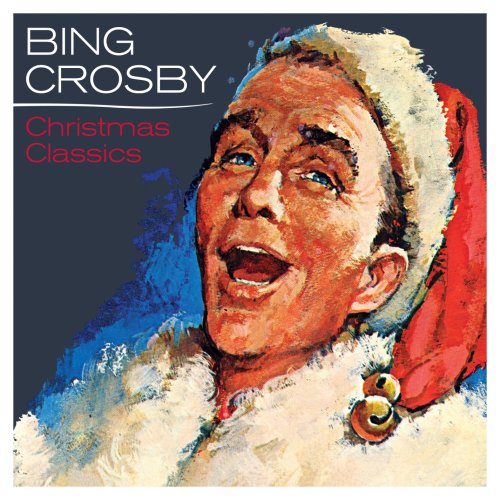The first rule of Hollywood Biopic-Making is, dig deep into the life of any protagonist and you will either find mommy issues (serial killers) or a momma's boy (troubled hero). Never fails to add a touch of drama on the Character Development front. If you're gunning for Oscar gold, you could throw in a nice, gritty descent into drug addiction hell. But be warned: this wont work if your film is set in the 20s because you cant waste classy pinstriped suits and vintage atmosphere on the cesspit of drug abuse. It simply wont fit into the gangster-flapper-fedora aesthetic. But never fear, there's always the option of portraying obsessiveness bordering on mental illness with bonus points for homosexuality.
Besides, embroidering the truth for the sake of a good story has been a long-standing tradition among minstrels, raconteurs and now, film-makers. Which is why I've never really understood why people criticize a biopic for inaccuracies. The aim of a biopic cannot be to merely narrate the events in a person's life because two hours could never do justice to a life's worth of experience. A biopic is as much about the storyteller as it is about the subject, and the truth is at best, a minor selling point and at worst, irrelevant.
J. Edgar Hoover was the founder and director of the Federal Bureau of Investigation. He is credited for recognizing the importance of a centralised criminal investigation agency, the value of forensic evidence and for placing 'G-Men' in the cool corner of the pop-culture map, thereby becoming single-handedly responsible for an entire genre of TV shows. This film tell Hoover's story from his POV; a conceited braggart who convinced himself that he saved America from the Bolsheviks and numerous untold threats. But as shaky as his memories are, is his conclusion so very wrong, the movie asks us. He may not have personally arrested John Dillinger as he would have us believe, but does that make him any less influential? He may have exaggerated his involvement in high profile incidents, but the fact remains that he was director of the FBI for 48 years and could not be budged by six Presidents. When you've done stuff like that, what's a white lie here or a tall tale there?
The film succeeded as a compelling story by defining Hoover by the Lindbergh baby case. Not only did the case help the then-fledgling FBI amass enormous powers, but is also a perfect analogy for Hoover's life. Just as the evidence against Hauptmann (which, at the time, was termed "overwhelming") has been re-examined and many troubling questions have been raised, so too has Hoover's legacy. Was he a forward thinking genius or a paranoid loony trying to justify his Bureau's existence by spotting villains in every shadow? Did he innovate investigation or did he crucify privacy at the altar of national security? As this film tells it, a little bit of both.
While films with straight actors portraying gay characters are labelled 'Oscar bait', I am mindful of the fact that no discussion of Hoover is complete without mention of his relationship with Clyde Tolson. Unfortunately, too little is known about Hoover, who was so scrupulous about his keeping his desk and personal life squeaky clean. Unsubstantiated gossip from the Walter Winchell ilk have sufficiently muddied the waters to make it impossible to ever have a clear picture. What little we know is coloured by our perceptions of that bygone era. The film-makers thus had a daunting task in interpreting their relationship: they couldn't ignore the rumours nor have made him an effeminate cross-dresser who attended wild gay orgies. No doubt the 20s were the decadent years and the orgies must've been buckets of fun, but I find it hard to believe that a man who understood the value of even one little slip-up in the blackmail market and a man whose position in D.C. was nowhere close to untouchable, would put on his pink tutu and head out to the nearest party. Of course, one could name a number of present day public figures who were caught with their (literal and figurative) pants down and who should've all known better. But there is simply no satisfying end to this discussion and the only fair way to judge this film would be on its ability to tell a convincing story, rather than its ability to tell the true story. There were rumours that the film would be substantially de-gayed, but the end result was a touching and convincing portrayal of Tolson and Hoover's relationship. They beautifully reconciled Hoover's seemingly contradictory sides: his conservative views and his obvious affection for Tolson.
Coming to the actors, old person make-up is always a gamble and the payoff is rarely worth the risk. That said, Dicaprio pulled it off with panache. After the shock of the first few minutes, I stopped seeing the makeup and only saw J. Edgar. Poor Armie had a much harder time getting away with it. Cosmetic troubles notwithstanding, Leo and Armie were both superb in their roles and they shared a wonderful camaraderie. Despite playing a reticent sidekick, Armie managed to not get overshadowed by Leo's forceful performance.

- Armie, getting the short end of the foundation stick.
A few hours ago, the Oscar nominees for 2012 were unveiled and J. Edgar has been properly screwed over, despite dangling Academy baits like Dame Judy and Clint Eastwood. Could it be that the Academy can see the hook on which the bait is presented? Or could it be that the film pissed off the Democrats by showing Hoover in a sympathetic light and the Republicans by making Hoover gay? Or because the whole film was not greater than the sum of its parts? Personally, I think the G-men were involved.









